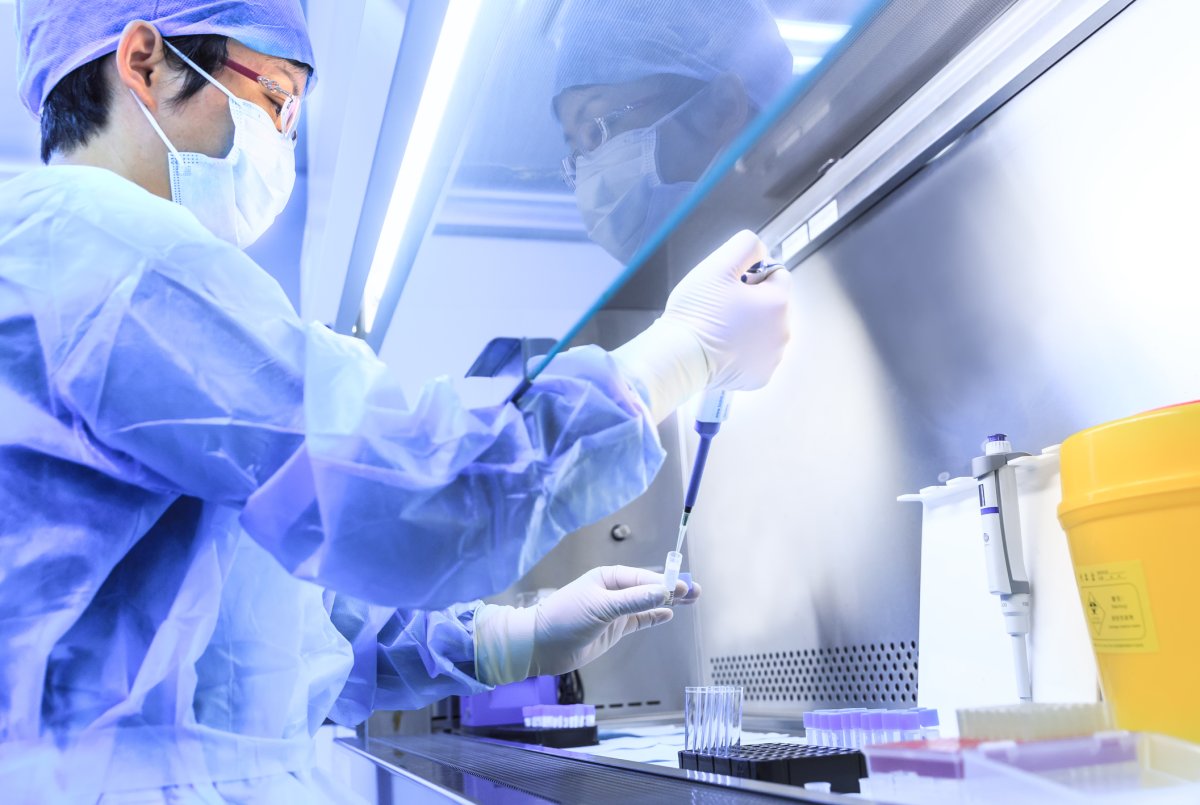The COVID-19-causing coronavirus disguises itself so it can hide inside our cells without being detected by the immune system in order to replicate, according to a study.
For the paper published in the journal Nature Communications, scientists examined the 3D structure of a protein called nsp16 that the coronavirus creates.
The team saw on an atomic level how the coronavirus uses the protein to change the way its genetic material is communicated, to protect it from the host as it tries to invade a cell. The change also allows it to mimic the genetic material of the cell it is entering so the host can't distinguish it from its own.
Asked whether this is akin to the virus disguising itself, Yogesh Gupta, assistant professor of biochemistry and structural biology at the University of Texas Health Science Center told Newsweek: "The virus uses this pathway to hide inside the cell and replicate in the body."
Gupta said his team were motivated to understand what makes the coronavirus also known as SARS-CoV-2 so deadly and different from others members of its family, in the hope of helping with the development of new treatments.
"Our work not only enhances basic understanding of a key pathway of SARS-CoV-2 biology, it also provides a solid framework for developing novel antivirals against COVID-19 and emerging coronaviral illnesses in the future," he said.
However, Gupta said human cells contain proteins which do similar things. So more research is needed before drugs can be developed that aren't harmful.
"Nonetheless, our work provides a starting point from which specific nsp16 inhibitors can be designed," he said.
Study co-author Dr. Robert Hromas, professor and dean of the Long School of Medicine, said in a statement: "Yogesh's work discovered the 3D structure of a key enzyme of the COVID-19 virus required for its replication and found a pocket in it that can be targeted to inhibit that enzyme. This is a fundamental advance in our understanding of the virus."
There are currently no drugs specifically designed to treat COVID-19, although some existing medications have been repurposed. Scientists are also racing to develop a coronavirus vaccine, with trials showing promising results and an unprecedented rate.
Over half a year after the pandemic started, 15.5 million COVID-19 cases have been confirmed, over 633,000 had died, and more than 8.8 million known to have recovered.

Uncommon Knowledge
Newsweek is committed to challenging conventional wisdom and finding connections in the search for common ground.
Newsweek is committed to challenging conventional wisdom and finding connections in the search for common ground.
About the writer
Kashmira Gander is Deputy Science Editor at Newsweek. Her interests include health, gender, LGBTQIA+ issues, human rights, subcultures, music, and lifestyle. Her ... Read more
To read how Newsweek uses AI as a newsroom tool, Click here.








